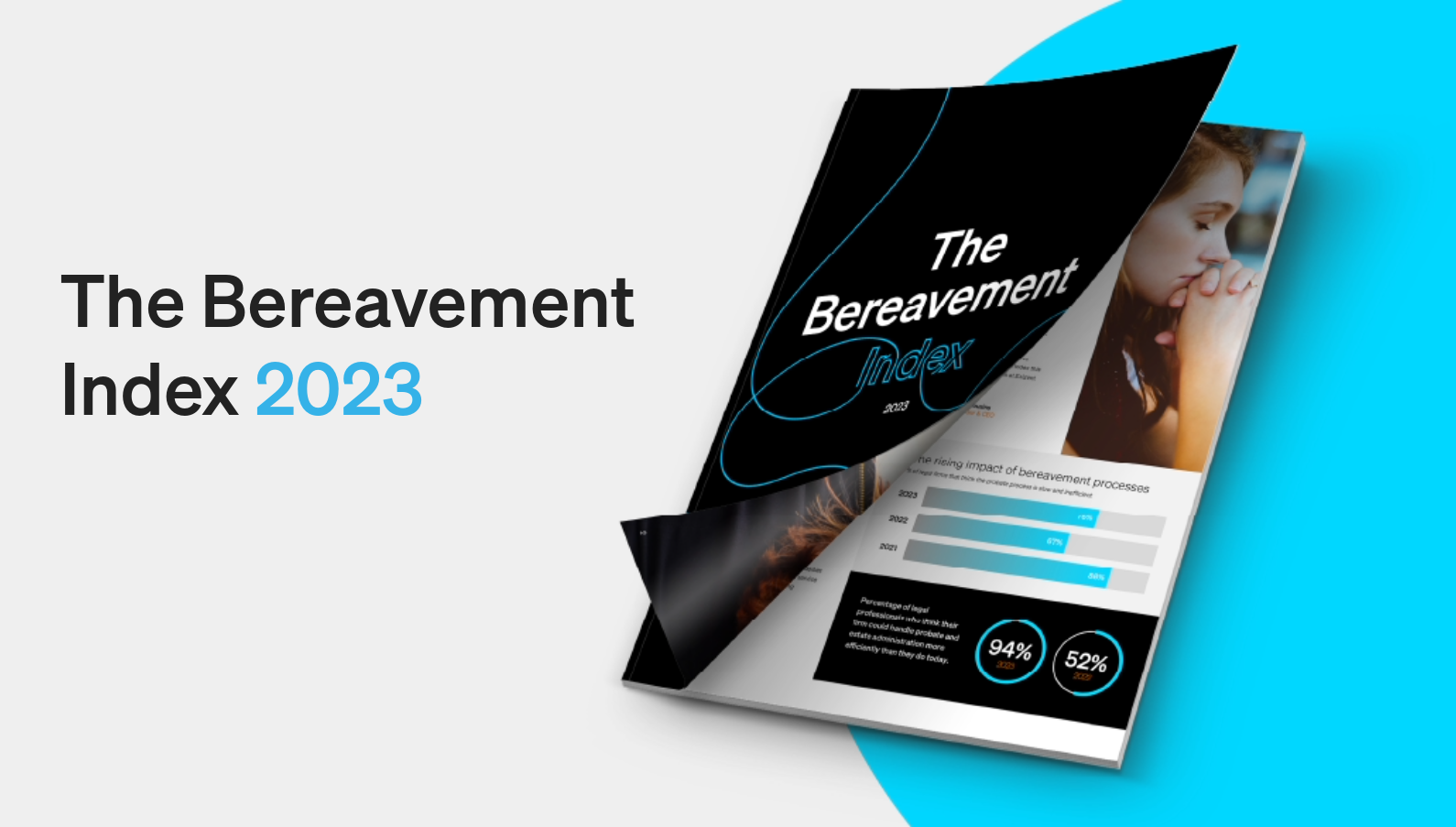
This figure is 42% more than in 2022. More than a quarter (26%) of these professionals’ also report that their firm is currently under resourced and struggling with the workload, and a further 39% state that staff retention and recruitment is a strain.
However, lawyers are not the only ones struggling to improve their processes. The slow response of financial institutions causes substantial overall delays to the process. This may improve in future, as more than half of financial services professionals said their company has plans to improve their bereavement processes.
The Bereavement Index, now in its third year, researches the processes involved in bereavement in the UK as experienced by consumers, legal services firms and financial institutions. It uncovered a number of distressing facts about the probate and estate administration process after death.
More than half of grieving individuals report the process of administering a deceased’s estate substantially impacted their mental wellbeing, and nearly all (94%) found at least part of the process stressful. 18% report finding it extremely stressful.
Solutions to this may include dedicated technology, better communication and standardising processes.
When asked what would improve the service they offer, legal services professionals ranked better communications with financial institutions (53%) and executors (46%), faster responses from HMCTS/HMRC (49%), and a dedicated software solution (45%) as some of the top solutions. For the third year in a row, they rated technology as their number one investment priority—perhaps partly because only 26% reported using dedicated specialist software.
Nick Cousins, co-founder and CEO of Exizent, said: ‘Following the loss of a loved one, the last thing individuals need is a lengthy estate administration process that causes them additional stress including both mentally and financially.
‘The good news is that I know from conversations with financial services companies over the last year that many are planning to improve their processes associated with a customer’s death—and our research backs this up. The benefits of doing so are now recognised in meeting regulatory obligations, improving operational efficiency, and importantly because it is the right thing to do.’
Read the full Bereavement Index here.





.tmb-mov69x69.jpg?sfvrsn=87f6371e_1)


